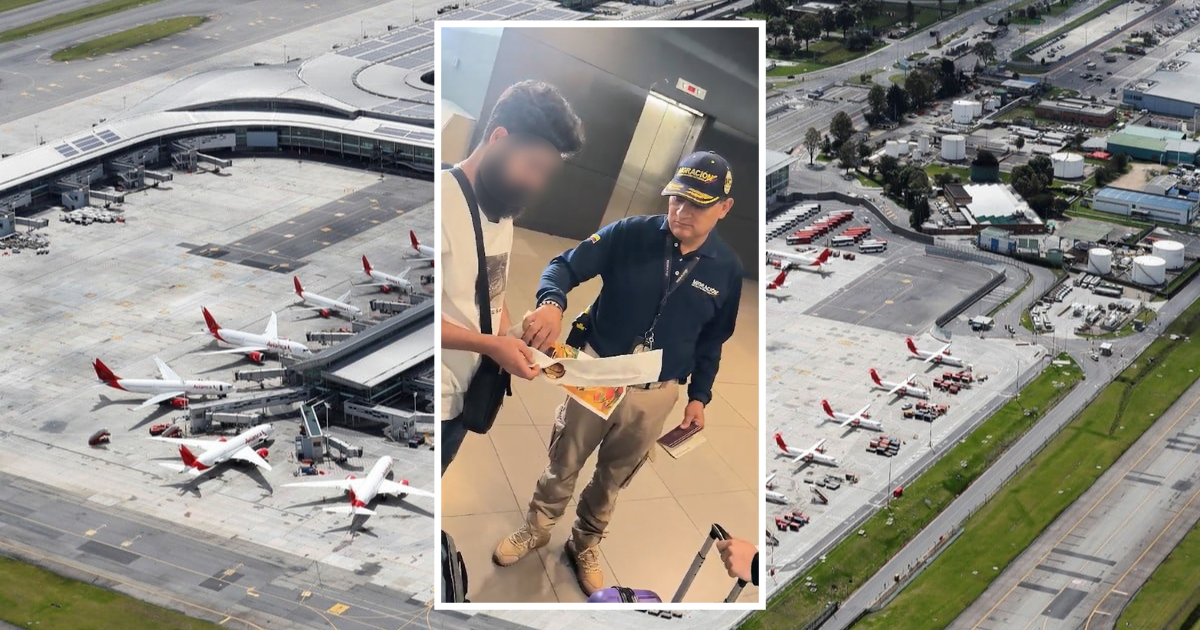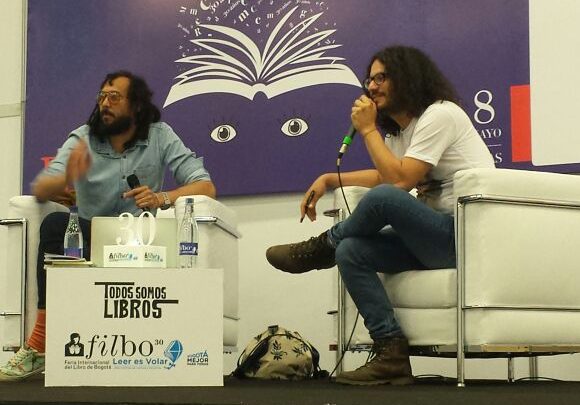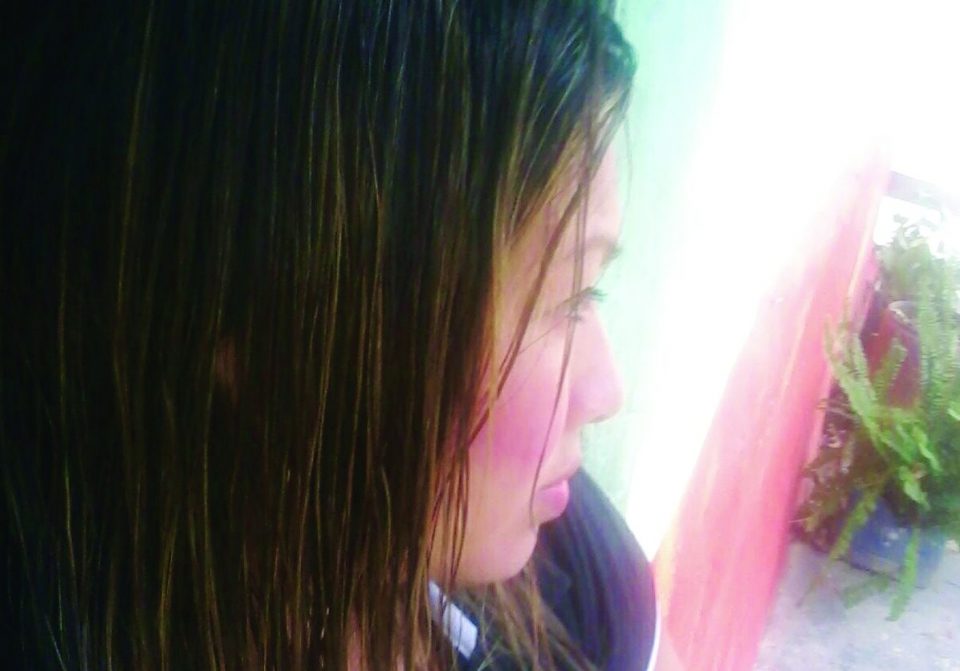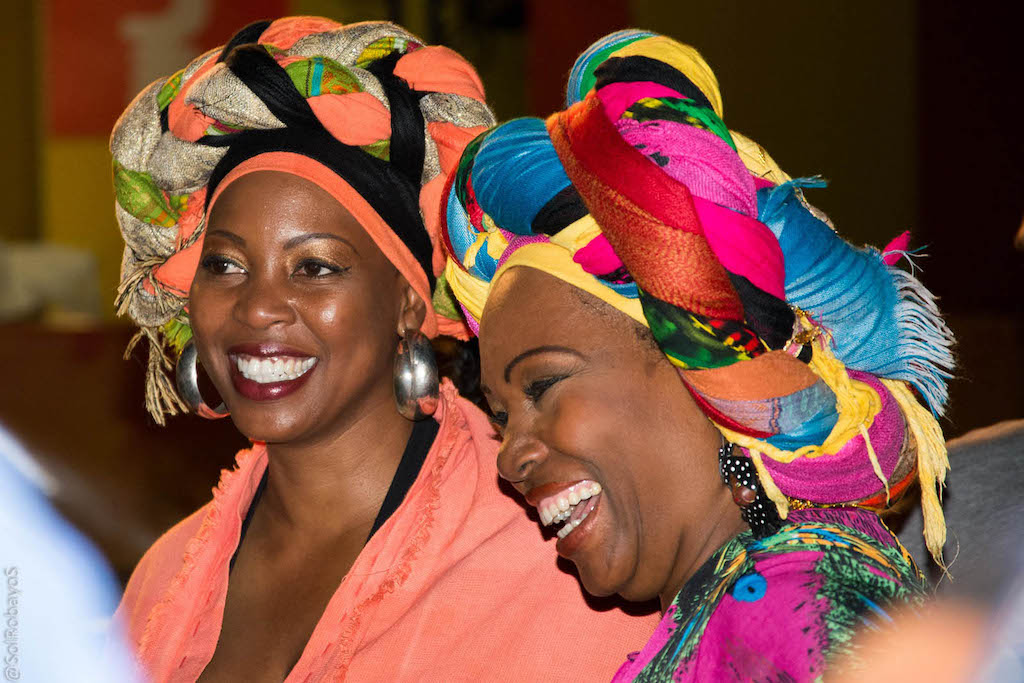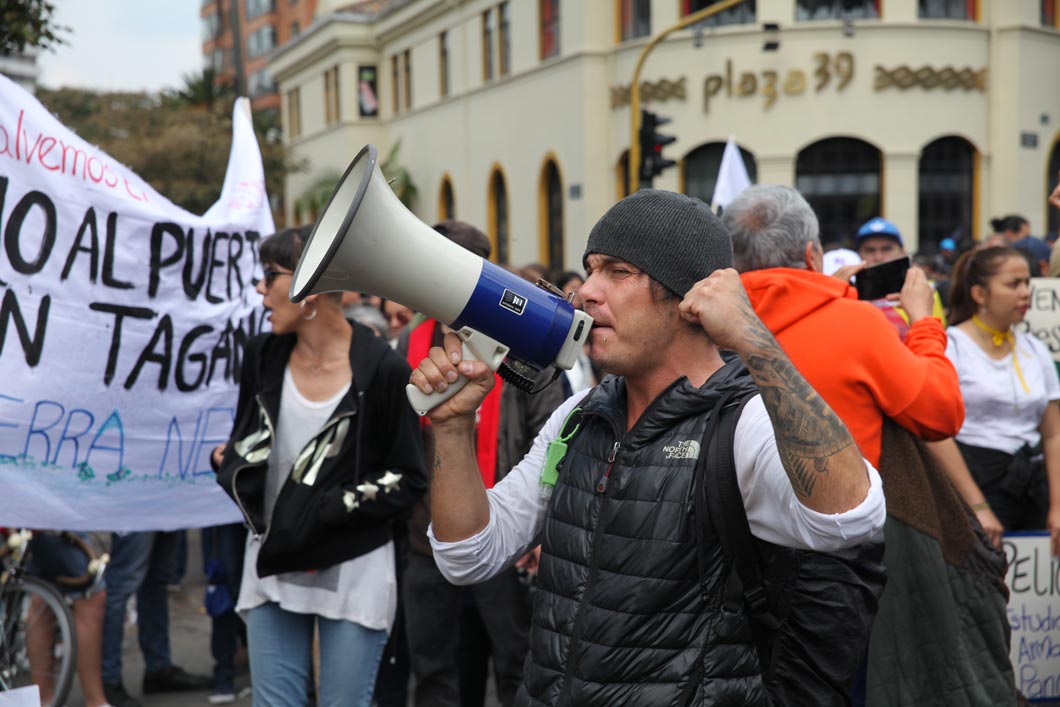Human rights campaigner says: ‘We want to live free from violence in our territory’
Astrid Milena González is an Indigenous leader from the Embera Chamí people based in the Sabaleta reserve who has been fighting for greater institutional representation and support for women’s rights in Chocó.
She told The Bogotá Post, “We have worked since 2014 to raise awareness of all the problems faced by Indigenous women, and to document all the different types of violence and human rights violations within our communities.”
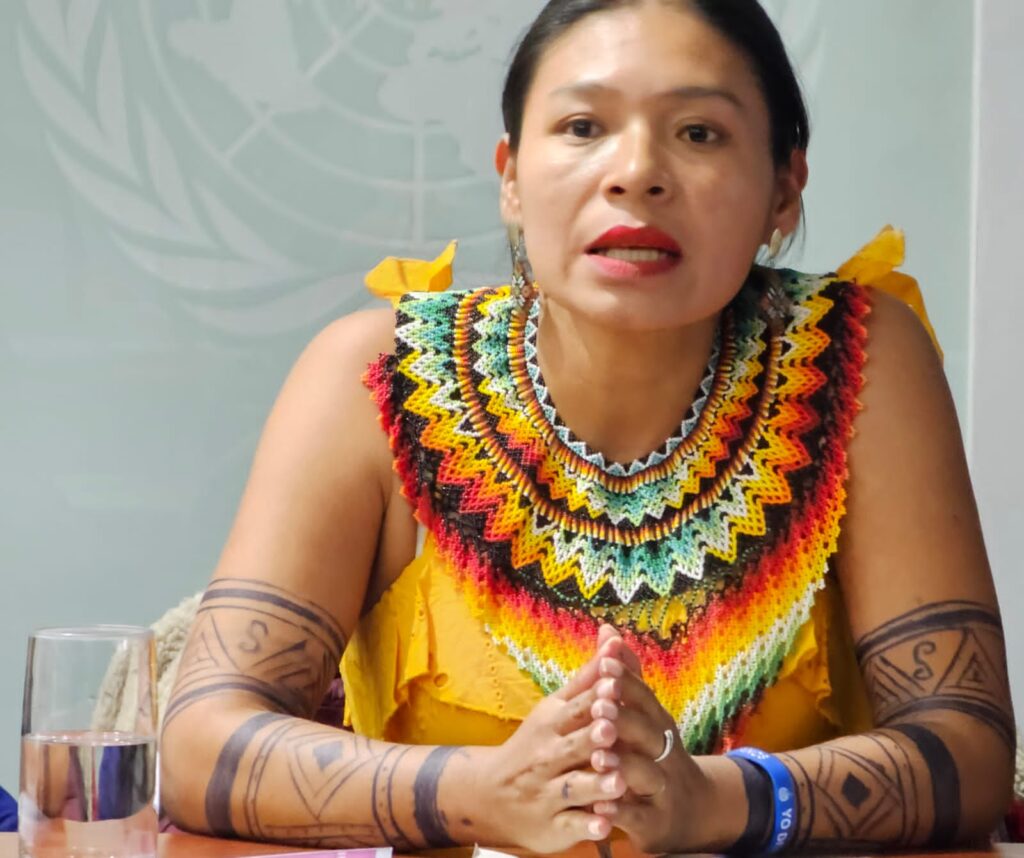
Astrid is part of the Programme for Women, a branch of the Permanent Roundtable for Dialogue and Consultation of the Indigenous Peoples of Chocó. The Women of Chocó are the focus of the 66th edition of the Noche y Niebla magazine (.pdf), released last Wednesday by CINEP, the Centre for Research and Education for the Popular Peace Programme and covering the second half of 2022.
According to the magazine, Chocó experienced 40 cases of human rights violations involving political persecution, abuse of authority, and social intolerance last year, which included acts such as murder, torture, and forced disappearance. Such an environment can be particularly tough on Indigenous women, who face disproportionate levels of violence and harassment.
“We are pushing so that organisations and the state can support us with the proposals we have, and we want to live free from violence in our territory,” Astrid said. In the two congresses held by the women thus far, they discussed four key themes: leadership, participation, governance, and Indigenous justice.
A trained social worker, Astrid has also held positions such as governor and rector within her community. She works with 17 Indigenous organisations at the national level, strengthening women’s life projects in collective territories and advocating for women’s issues locally, regionally, and nationally.
She explained that the Programme for Women is fighting for more institutional support, stating, “These [governmental] institutions pay very little attention to us women.” She added, “We have many times presented several actions or intentions to be able to speak of our situation of violence, yet they pay us very little attention. We have also suffered discrimination from these entities. There is not an adequate level of support.”
They feel increasingly neglected by the government, lacking access to both education and healthcare. Their plight is compounded by the contamination of rivers and fish, their main source of food, due to the mercury used by illegal miners.
“[We face] difficulties of communication and means of transport that continue to be inefficient, hindering access to health and effective participation in education and access to justice,” Astrid said. She feels that the health system in Chocó is poor, and people suffer as a result. “We have many untreated illnesses caused by mercury contamination, as well as malnourished children.”
Ilsa Banuvi Caizamo, an Indigenous leader from the Embera Dobida people in Nuquí, is a fellow member of the Programme for Women. She is a youth coordinator on her local Indigenous council and has also taken on several regional roles in Chocó.
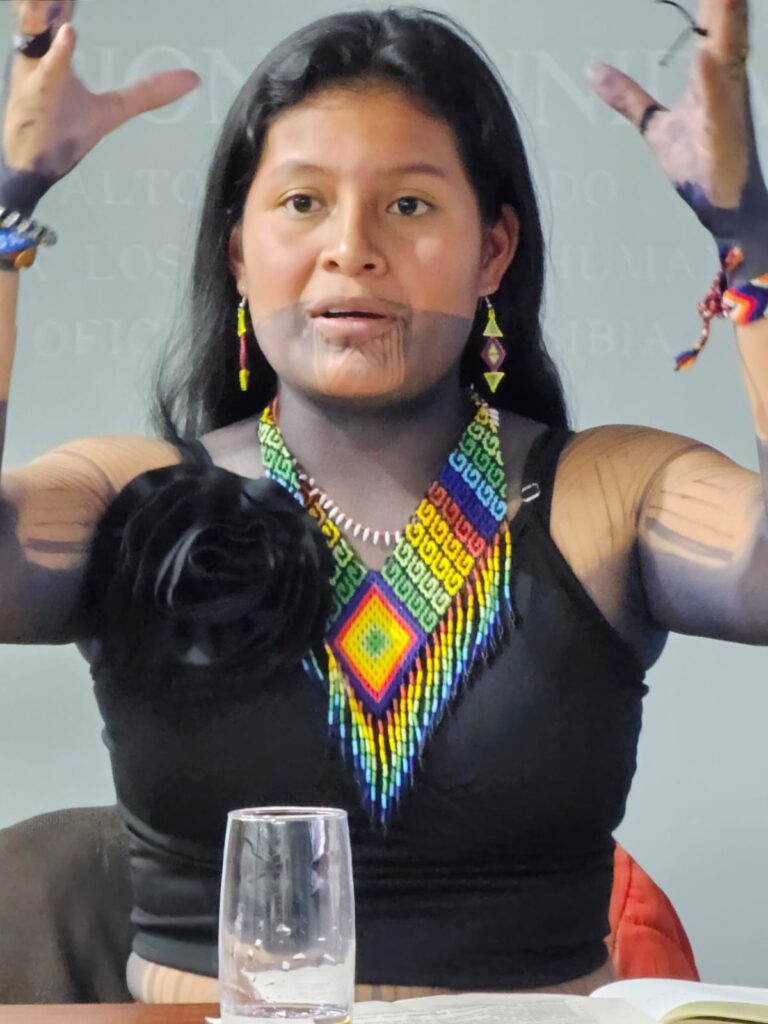
It is Ilsa’s mother that motivates her to continue fighting for the women in her community. “My mother brought me to this world, and she is suffering so many things with the governing bodies themselves, so much discrimination at an institutional level. It’s the structural racism that we have suffered that we can’t accept,” she explained.
She continued, “Everything that our women face, it’s exactly that which we want to mitigate. We want to be able to see our people, our Indigenous population in general, in tranquillity and harmony in our territory. We grew with this initiative, and this is our daily battle – to guarantee our youth the present and the future, and a dignified life in our territories.”
For years, the Indigenous and Afro-Colombian communities of Chocó have been heavily affected by the presence of armed groups in their territories. Sadly, Colombia’s 2016 peace agreement with the FARC has not solved many of the issues in the region.
Chocó is Colombia’s north-westernmost department, bordering Panamá and boasting coastlines on both the Pacific Ocean and the Caribbean Sea. According to the National Administrative Department of Statistics (DANE), it is the department with the second highest percentage of its population living in extreme poverty in all of Colombia, recording 33.3%(.pdf) in 2021.
A way forward
In the latest edition of the Noche y Niebla magazine, the Programme for Women specifies several demands with regard to re-establishing women’s rights in Chocó. These include the implementation of programmes to develop their economic autonomy, the construction of a safe house for victims of gender-based violence, and development of more easily-accessible modes to denounce rights violations.
They also include a greater focus on ethnoeducation which prioritises Indigenous traditions and practices within education programmes. For both women, establishing such a model is essential.
As Astrid detailed, “Each [Indigenous] group has its own mythologies and origins, and this is what we’re talking about when we speak of an ethnoeducation.” She explained that “unfortunately [the current education model] is more focused on what the state demands. […] It is education from the outside, not from a vision that comes from us as Indigenous women.”
Astrid emphasised that the role of the Indigenous woman is pivotal as they bear great knowledge. “From the off, our role is to be the first sources of knowledge, educators, and developers, of things such as the practices of traditional medicine, of the legends and traditions of our peoples, of the relationship with and protection of nature. This knowledge comes from us,” she said.
Unfortunately, there are growing threats to the continuity of these age-old practices. “Due to the presence of conflict and confinement in our territories, these practices are becoming increasingly isolated, the new generations are unlearning these forms and true practices of life,” Astrid explained.
“The interdisciplinary forms of education from the outside are [devaluing] our knowledge. It supposes that these things are bad, that they have less value, that they have less scientific knowledge,” she continued.
For Ilsa, meanwhile, the traditional forms of native education are also key: “We must begin to educate our youth, our children, our entire Indigenous population, from our origins. In the external environment we can lose sight of our horizons and begin to generate the same things that western culture has been implementing, violence and everything that we experience in the territory,” she said.
Ilsa and Astrid dedicate their time and energy to gain exposure and support for the women of Chocó. What they seek is peace in their territory.
In the words of Astrid, “We have a clear message: the Indigenous women want to live free from violence in our territory. We don’t want more violence. We want to have a free life so we can live peacefully in our territories, because that is what we have the right to. The territory for us is everything. Without territory, an Indigenous community is nothing.”

